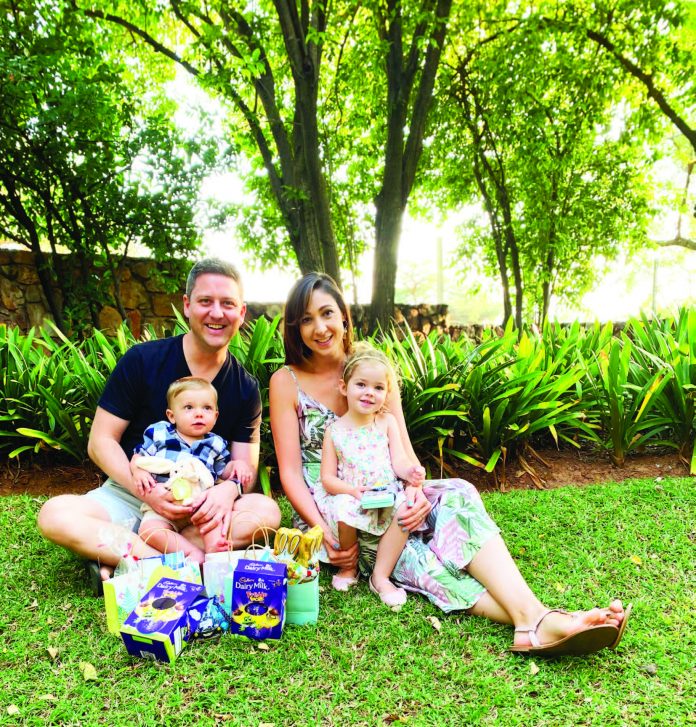“I HAD A GREAT CHILDHOOD. I HAVE THREE SIBLINGS. I HAVE FOND MEMORIES OF A BUSY HOUSE FULL OF NOISE AND LAUGHTER. WE SPENT OUR DAYS PLAYING AND WRESTLING.”
Dr. Clayton Erasmus was born and schooled in Pretoria. He attended Willow Ridge High School, where he was the deputy head boy, played first team hockey, and achieved academic honors with six distinctions. Thereafter, he earned his undergraduate medical degree at the University of Pretoria.
After attaining his MBChB, Dr. Erasmus worked as an intern at Port Shepstone Hospital. From there, he had decided on ophthalmology as a career and pursued a community service post in Kimberley in ophthalmology and plastic surgery. He stayed on in the Northern Cape for two more years as a medical officer to participate in cataract outreach programs to Upington.
At the beginning of 2014 at St. Johns Hospital in Soweto, Dr. Erasmus started his specialist training under Professors Carmichael, McLaren, and Mayet. He rotated through all ophthalmic subspecialties, including glaucoma, vitreoretinal, uveitis, pediatrics, and strabismus, anterior segment and cataract, orbital and plastics, as well as neuro-ophthalmology.
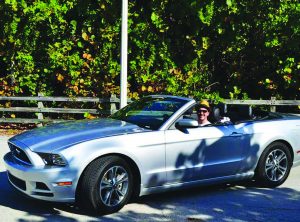 Dr. Erasmus has a keen interest in anterior segment work, including cataract and laser surgery. Having served in the government for many years, he was able to perform many successful traumatic eye surgeries. Dr. Erasmus obtained his specialist degree through the Fellowship of the College of Ophthalmologists of South Africa in 2017. During this time, Dr. Erasmus also obtained his Master’s in Medicine in Neuro-Ophthalmology by research report in 2017 through the University of Witwatersrand. During registrar training, he offered his surgical expertise to the Bureau for the Prevention of Blindness and has completed ten “blind tours” all over South Africa, helping to restore the sight of more than 300 patients in need of cataract surgery.
Dr. Erasmus has a keen interest in anterior segment work, including cataract and laser surgery. Having served in the government for many years, he was able to perform many successful traumatic eye surgeries. Dr. Erasmus obtained his specialist degree through the Fellowship of the College of Ophthalmologists of South Africa in 2017. During this time, Dr. Erasmus also obtained his Master’s in Medicine in Neuro-Ophthalmology by research report in 2017 through the University of Witwatersrand. During registrar training, he offered his surgical expertise to the Bureau for the Prevention of Blindness and has completed ten “blind tours” all over South Africa, helping to restore the sight of more than 300 patients in need of cataract surgery.
How was your childhood?
I had a great childhood. My father is a vet, and my mom is a physio, also in Pretoria. I have three siblings, one older and one younger brother and one younger sister. I have fond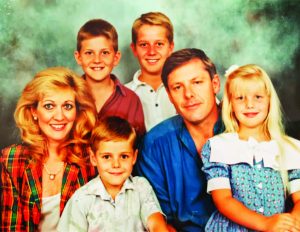 memories of a busy house full of noise and laughter. We spent our days playing and wrestling.
memories of a busy house full of noise and laughter. We spent our days playing and wrestling.
How did you get married?
I met my amazing wife in 2009 while doing my internship in a coastal town called Port Shepstone. She is an occupational therapist and was doing her community service at the same government hospital. When I got a post in ophthalmology as a medical officer in Kimberley in 2011, I dragged her with me to the “Big Hole.” I proposed on a trip to Whistler in 2012 next to the Lost Lake. We got married at a very quaint boutique wine farm in Tulbagh in the Western Cape of South Africa.
How are your relationships with your children?
Nicole and I have two beautiful children, Paige (three years old) and Kian (ten months old). I try to spend as much time as possible with them, and since I started my practice, I have made sure that I have one afternoon off a week to be able to play with my kids.
Why ophthalmology? What drew you to ophthalmology?
The surgery. I love being in the theatre. I watched an ophthalmologist do cataract surgery when I was in an internship and thought, ‘I’d love to do this!’ It was like watching a (very short) ballet.
How has your career progressed?
I have gone from not knowing what subspecialty to pick to not wanting to pick. I enjoy 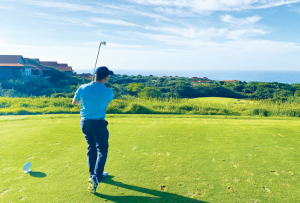 general ophthalmology, and I have been fortunate enough to learn the skills, both anterior and posterior, from excellent and experienced surgeons within the Pretoria Eye Institute.
general ophthalmology, and I have been fortunate enough to learn the skills, both anterior and posterior, from excellent and experienced surgeons within the Pretoria Eye Institute.
What are you most proud of in your career?
From a practice point of view, my practice has grown exponentially year after year. From a leadership perspective, I was asked to chair the upcoming Ophthalmological Society of South Africa (OSSA) 2022 Congress.
What do you enjoy most about your job?
Again, the surgery. I get a kick out of getting a great post-op result and a happy patient.
What can the industry do to help support clinicians?
Provide non-biased education and training.
What changes are needed in ophthalmology? What is the next big thing in ophthalmology?
We need to focus on diagnoses that don’t have cures. Optic nerve disorders, such as optic atrophy and glaucoma, are poorly understood. I would like to see our ability to neuro regenerate expand so that we can offer our patients these treatments. There needs to be a paradigm shift when it comes to thinking about diseases of the optic nerve.
What advice would you offer to junior ophthalmologists?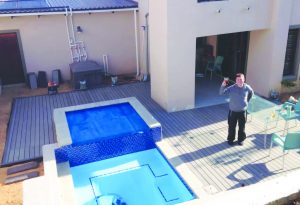
Don’t be forced to choose a subspecialty too soon. Enjoy the amazing field of ophthalmology for a few years and then decide. If you really have a passion for one specific thing, then go into that with the view of making ophthalmology a better place for colleagues and patients.
Secondly, stay humble and listen to your patients. If it wasn’t for them, you would not be what you are.
If you could go back ten years, what advice would you give your younger self?
Be kind to yourself; you need to be your biggest fan and biggest critic. Don’t take criticism from someone you wouldn’t take advice from. Don’t let anyone tell you that you cannot do or achieve anything. And lastly, we are all only human. Be kind to others; treat them the way you want to be treated. Laugh, love, and enjoy your life. There are no second takes.
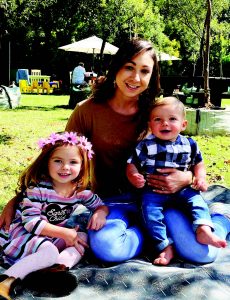 What do you like and not like about yourself?
What do you like and not like about yourself?
I am a very down-the-line, black-or-white kind of person. There is no grey. This is one of my positive attributes because it helps with a very logical approach to everything. But
if you had to ask my wife, I suppose this is also one of my negative traits because emotions are not always black or white.
What is the best/most memorable moment of your life?
My honeymoon… renting a Ford Mustang and driving up to Disney World, Florida. After that, jumping on a cruise liner sailing to Jamaica and the Bahamas, after which we explored the beautiful Cancun, Mexico.
What do you do in your free time and during holidays?
We love to travel, so Covid-19 has really been a dampener for us. Exploring the world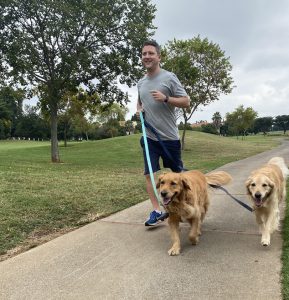 started at a young age for me, as my parents are also keen travelers. In my free time, I enjoy playing golf and running with my two golden retrievers. I love to listen to music and enjoy cooking and eating good food.
started at a young age for me, as my parents are also keen travelers. In my free time, I enjoy playing golf and running with my two golden retrievers. I love to listen to music and enjoy cooking and eating good food.
Do you have any motto?
Positive thoughts breed positive results.
I foresee a huge uptake of AI used for diseases such as diabetes and glaucoma. With the imaging we have available, it is only a matter of time before all those images can be used to build a normative database so that computers can tell us firstly if there is any pathology detected, and then what stage the disease is in, and what treatment is most appropriate. I think fundus photography and OCT’s will have AI capability in the very near future.


